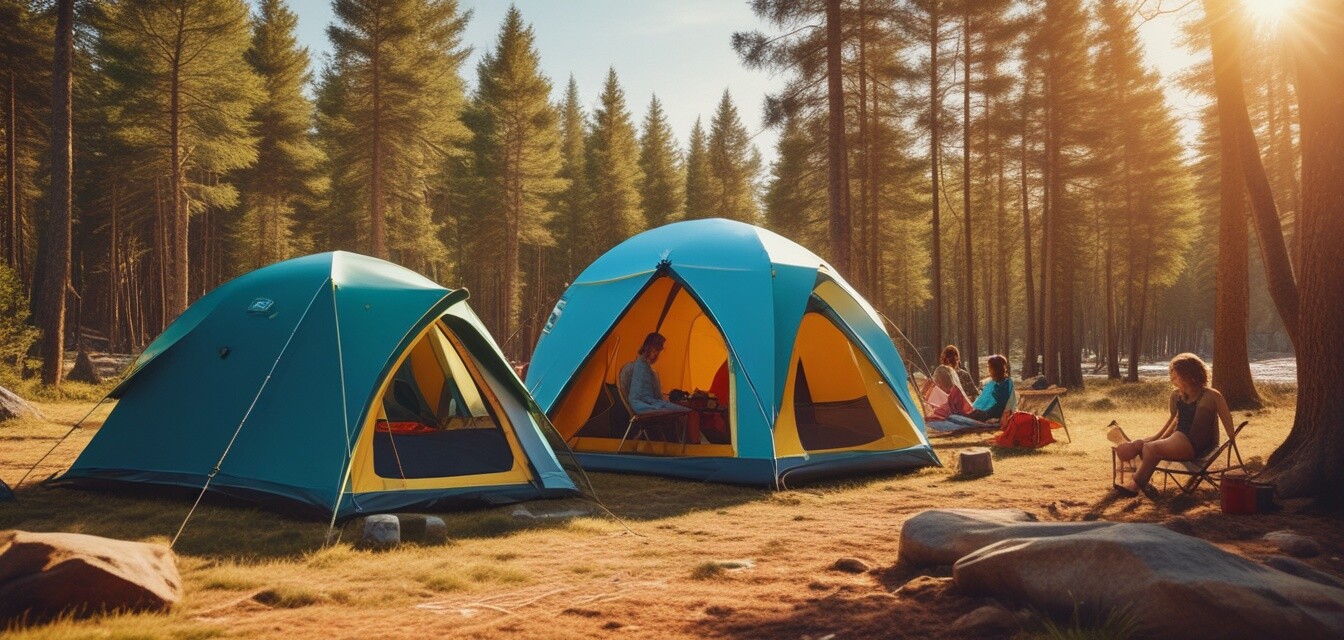
How to Teach Kids About Solar Power While Camping
Key Takeaways
- Engage kids with hands-on solar energy activities.
- Use fun experiments to illustrate solar energy concepts.
- Incorporate solar gadgets into camping life.
- Encourage questions and curiosity about renewable energy.
Camping offers a perfect backdrop for teaching children about sustainable energy sources like solar power. While enjoying the great outdoors, families can engage in educational activities that make learning fun and interactive. Here’s how to effectively teach kids about solar energy while camping.
Why teach kids about solar power?
Understanding solar power is essential in today’s increasingly eco-conscious world. By teaching kids about solar energy, you’re not only promoting environmental awareness but also encouraging them to think critically about energy sources and their impact on the planet.
Benefits of learning solar power during camping
- Hands-on experience with solar technology.
- Connection to nature and the environment.
- Development of problem-solving skills.
- Enhancement of family bonding through shared learning.
Fun ways to teach kids about solar power
- Solar Cooking: Involve your children in preparing meals using solar cookers or grills. Explain how the sun’s rays are converted into heat and how they can cook food using this renewable resource.
- Solar-Powered Gadgets: Bring along solar lanterns or other solar-powered devices. Discuss how these devices work, encouraging your kids to experiment with placement for maximum sunlight absorption.
- Solar Water Heating: If you have a solar shower, use it as an opportunity to explain how solar energy can heat water. Discover the process together by discussing how solar energy can be used to heat water for drinking and washing.
- Outdoor Science Projects: Set up small experiments such as building solar-powered models or using magnifying glasses to focus sunlight. These activities will foster curiosity and reinforce the principles of solar energy.
Engaging activities to reinforce learning
Solar shadow drawing
Encourage kids to observe and trace shadows on paper at different times of the day. Explain how the position of the sun changes during the day and how it impacts solar energy collection.
Solar scavenger hunt
Create a scavenger hunt that includes items related to solar energy, such as solar panels, sunlight, or shadows. This activity will help children relate their surroundings to the lessons they’re learning.
Exploring solar technology: What to bring
| Item | Purpose |
|---|---|
| Portable solar panel | To charge devices and demonstrate energy generation. |
| Solar lanterns | To provide light and teach about solar storage. |
| Solar cooker | To cook snacks and meals using solar energy. |
| Science kits | To conduct experiments that illustrate solar principles. |
Encouraging discussion
Ask questions and spark conversations about energy and the environment. Here are some starter questions:
- What do you think happens to the energy from the sun?
- How do you think solar energy can help us in our daily lives?
- Can you think of other renewable energy sources?
Conclusion
Teaching kids about solar power while camping can turn a simple outdoor adventure into an enlightening experience. Not only will they learn valuable lessons about sustainability, but they’ll also form lifelong memories of fun family moments spent under the sun. Make the most of your next camping trip by integrating these educational activities, and inspire the next generation to appreciate and utilize solar energy.
Pros
- Hands-on learning experience creates lasting impressions.
- Promotes environmental sustainability awareness.
- Involves fun activities fostering family bonding.
Cons
- Requires prior knowledge of how solar energy works.
- Potential challenges in demonstrating solar technology based on weather conditions.
- May need specific equipment that can be bulky to carry.
Further reading
For those interested in exploring more about solar-powered camping gear, check out our pages on solar camping tents, portable solar panels, and solar cookers & grills.
If you're looking for more expert tips on outdoor adventures, take a look at our Expert Tips section to elevate your camping experiences!
Join us on our journey towards sustainable camping with solar-powered technology to enrich your time in nature!